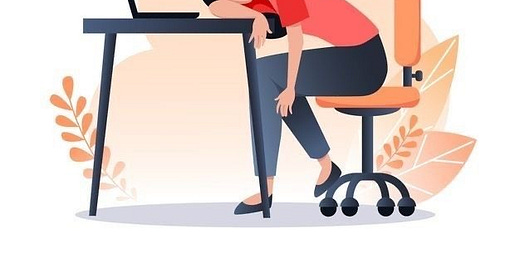Why Is Asking for Help So Hard? (And How to Get Over It)
Unlearning the fear of seeking support, embracing help without guilt, and reclaiming your energy.
I used to think asking for help was a weakness. That if I just pushed through, handled everything on my own, and kept my struggles to myself, I’d be seen as strong. Independent. Capable.
We, as women, have been conditioned to be givers. We pour, we nurture, we solve. But when it comes to asking for help, we freeze. Why? Because for many of us, seeking support feels like admitting weakness. It’s as if we are failing at something we’re supposed to naturally handle on our own.
But do you know what that mindset really got me? Burnout. Exhaustion. And a quiet resentment that built up every time I found myself drowning while everyone around me assumed I had it all under control.
Why do so many of us—especially women—struggle to ask for help? Why do we believe we have to carry it all alone? Let’s talk about it.
Why We Struggle to Ask for Help
For me, it started with eldest daughter syndrome. If you know, you know. I was the fixer, the responsible one, the person everyone turned to. I learned early that my role was to take care of things—not to need anything myself.
Then came people-pleasing. I didn’t just want to be helpful; I wanted to be seen as strong. I wanted to be the person who could handle everything, who didn’t need to lean on anyone else. So, I swallowed my struggles and powered through, convincing myself that asking for help would make me a burden.
Sound familiar? Maybe you’re the go-to person in your family, the reliable friend, the coworker who never says no. And maybe, like me, you’ve found yourself exhausted from carrying the weight of it all.
The truth is, we are not meant to do life alone. And refusing to ask for help isn’t proof of strength—it’s a surefire way to run ourselves into the ground.
The Hidden Cost of Never Asking for Help
When we refuse to ask for help, we tell ourselves we’re just being strong. But in reality, we’re often doing more harm than good:
At work: We take on too much, afraid that delegating will make us seem less competent. We don’t ask for mentorship, even when we need it. We work twice as hard and wonder why we’re so drained.
In relationships: We’re always the giver, always showing up for others—but when we need support, we hesitate. We don’t want to be a burden, so we suffer in silence.
At home: We juggle it all—chores, parenting, emotional labor—because it’s “easier” than asking for help. But easier for who?
The truth is, refusing to ask for help doesn’t make us stronger. It makes us exhausted, resentful, and stretched too thin. And worst of all? It robs others of the chance to show up for us the way we show up for them.
How to Start Asking for Help – Without Feeling Guilty
If you’ve spent years struggling to ask for help, shifting your mindset won’t happen overnight. But here’s how you can start:
Recognize That Asking for Help is a Strength, Not a Weakness.
The most successful people don’t do everything alone—they build support systems. If CEOs and world leaders rely on teams, why do we think we have to do it all by ourselves?
Start Small.
If asking for help feels unnatural, begin with something simple. Ask a friend to pick something up for you. Delegate a small task at work. Get used to the feeling.
Reframe the Narrative.
When someone asks you for help, do you think they’re weak? No. You probably admire their honesty and want to support them. Give yourself the same grace.
Be Clear and Direct.
Stop hinting and hoping someone will notice you need help. Instead of saying, “I’m so overwhelmed,” say, “Can you take care of this for me?” People appreciate clear requests.
Find a Safe Space.
Surround yourself with people who encourage vulnerability. Whether it’s a mentor, a therapist, or a community like Empower Her Mind, having a space where asking for help is normalized makes a difference.
Let Go of Perfectionism.
You don’t have to do it all. You don’t have to do it flawlessly. You just have to be willing to share the load.
Your Challenge: Ask for Help This Week
I challenge you to ask for help at least once this week—in your career, in your relationships, or in your home life. Notice how it feels. Notice how people respond.
And let’s talk about it: What’s the hardest thing for you to ask for help with? Drop it in the comments. Let’s start normalizing what we all need—because none of us are meant to do this alone.
Sculpted Thoughts ✨ | Mental Health • Career Growth • Personal Development
A space where stories shape resilience, and insights fuel transformation. From mental health and career pivots to personal growth, I share real experiences, lessons, and strategies to help you thrive.
Subscribe for honest conversations, expert insights, and a community that supports your journey.





You had me at eldest daughter syndrome. I never understood why life was so different for me until I heard about the phenomenon that is eldest daughter syndrome. It explains so much. This whole post resonates, thank you.
I love this! Challenge Accepted!